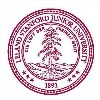英国剑桥大学博士后职位
英国剑桥大学博士后职位
We are seeking modellers to build on our work to describe how plant pests and diseases spread in a natural and agricultural setting including developed and developing countries. The modelling is intended to inform policy at a national and international level to aid in optimal surveillance to predict the future spread of emerging diseases and to allow for exploration of optimal management scenarios. You will be expected to communicate the results of these models to stakeholders from various national and international bodies. The successful applicants will work with the current team of modellers to optimise and expand existing modelling approaches and will have unique opportunities to inform the implementation of national disease management policies, as well as for publication.
Applications are invited from candidates with a PhD in applied mathematics, physics, statistics or a related subject. Familiarity with mathematical modelling of disease epidemics would be a strong advantage but is not essential. Knowledge of Python, R and handling spatial data is highly desirable.
The ideal candidates will be able to work closely with biologists to incorporate realistic biological processes into models. Good communication skills are essential as the post holders will need to work well in a team and collaborate widely including communicating modelling results effectively to specialists and to non-technical clients and policy agencies. The post-holders will be based in the Epidemiology and Modelling Group at Cambridge where there is substantial expertise in modelling and parameter estimation.
The Epidemiology and Modelling Group comprises a group of mathematicians, physicists, statisticians and biologists led by Professor Chris Gilligan. The group is housed in modern office space within the Department of Plant Sciences at Cambridge and has close links with other modelling groups in Cambridge and internationally. The research is focused mainly on developing and testing a theoretical framework to understand the mechanisms that control invasion, persistence, scaling and variability of epidemics within changing agricultural and natural landscapes. The models involve the synthesis of epidemiological theory, population and evolutionary genetics, landscape ecology, economic and meteorological modelling. The models are tested using data from extensive field and regional data-sets, and are used to predict the spread of disease and sustainable control strategies across diverse scales and regions. Outputs from the models are used to inform government policies.
Fixed-term: The funds for this post are available for 2 years in the first instance.
Once an offer of employment has been accepted, the successful candidate will be required to undergo a basic disclosure (criminal records check) check.
Successful candidates who have not been awarded their PhD by the appointment date will be appointed as a Research Assistant at Grade 5 (£26,715 - £30,942 per annum). Upon award of the PhD the individual will be promoted to Research Associate, Grade 7 (£32,816 - £40,332 per annum).
Click the 'Apply' button below to register an account with our recruitment system (if you have not already) and apply online.
CV and covering letter required. Contact Sally Hames (sah57@cam.ac.uk ) if you have any queries.
Please quote reference PD21023 on your application and in any correspondence about this vacancy.
The University actively supports equality, diversity and inclusion and encourages applications from all sections of society.
The University has a responsibility to ensure that all employees are eligible to live and work in the UK.
Further information
2 Postdoctoral Research Associates Epidemiological Modellers
Two postdoctoral positions are available to work in the Epidemiology and Modelling Group of the Department of Plant Science at the University of Cambridge led by Professor Chris Gilligan to work on developing landscape scale epidemiological models of plant diseases across a variety of real-life systems.

















